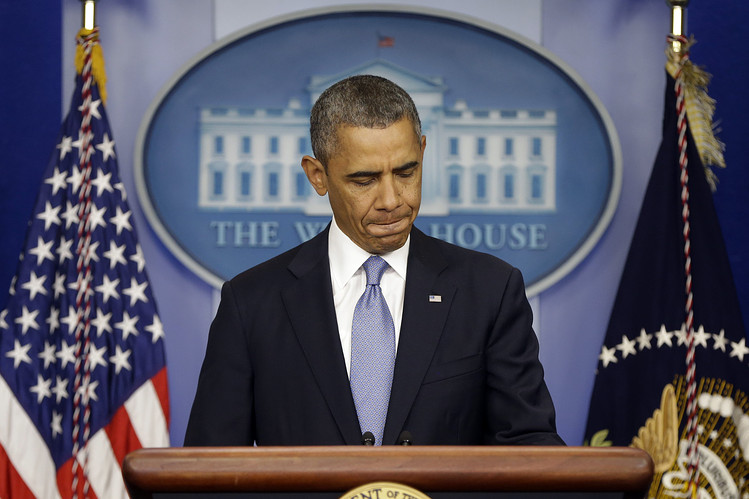President Barack Obama announced on Tuesday that United States of America Government and businesses have committed $33 billion in new investments to support economic growth across Africa.
According to a statement issued by the White House, Obama made the announcement at the US-Africa Business Summit in Washington D.C.
President Goodluck Jonathan is among the 50 African leaders attending the three-day summit.
According to the statement, Obama announced $7 billion in new financing to promote US exports to and investments in Africa under the Doing Business in Africa campaign.
The statement said: “U.S. companies announced new deals in clean energy, aviation, banking, and construction worth more than $14 billion.
“This is in addition to $12 billion in new commitments under the President’s Power Africa initiative from private sector partners, the World Bank and the Government of Sweden.
“Taken together, these new commitments amount to more than $33 billion, supporting economic growth across Africa and tens of thousands of U.S. jobs.”
It said Obama also signed an Executive Order to promote broad-based economic growth in the US and in Africa by encouraging US companies to trade with and invest in Africa.
“The E.O. directs the Secretary of Commerce to establish a President’s Advisory Council on Doing Business in Africa that will be comprised of not more than 15 members from the private sector, including small businesses,” the statement said.
It also announced that the US Trade and Development Agency had reaffirmed its plan to have local representation in Nigeria for the first time.
USTDA, in cooperation with the US Department of Energy and US Department of Transportation, hosted two African Leaders’ Visits in association with the US-Africa Leaders Summit.
These reverse trade missions highlighted the United States’ experience fostering economic growth through strategic infrastructure investments in the energy and transportation sectors.
The DBIA Campaign encourages US commercial engagement in Africa by harnessing the resources of the US Government to assist businesses in Africa.
The campaign, which was launched in November 2012, aims to among other things, expand access for American businesses to finance their exports to Africa.
It also seeks to reduce barriers to trade and investment in Africa.
Earlier in Abuja on Tuesday, US Assistant Secretary of Commerce for Economic Development, Jay Williams, provided a background of the Business Forum in a video-conference with local entrepreneurs in Nigeria.
Williams said the forum was aimed at intensifying efforts to strengthen trade and financial ties between the US and Africa.
He underscored the US’s commitment to renewal of the African Growth and Opportunity Act, noting that it was a key tool to deepening trade and investment ties between the US and Africa.
AGOA allows 6,400 products from eligible Sub-Saharan African countries to enter the US duty free.
According to US Department of Commerce, in 2013, US imports under AGOA totaled $26.8 billion.
In May, the US Secretary of Commerce, Penny Pritzker, led a trade mission of 20 US companies to Nigeria and Ghana, mainly focused on the energy sector.
During the trade mission, Environmental Chemical Corporation, based in California, signed a Memorandum of Understanding with University College Hospital, Ibadan, Oyo State for the finance, design and construction of a new, state-of-the-art cancer institute.
Africa is home to seven of the 10 fastest growing economies in the world and Nigeria, which is US largest trading partner, has the largest economy on the continent.
Trending
- Police probe death of Akwa Ibom makeup artist
- LAMATA begins phase upgrade of 91 bus stops
- Three arrested for vandalising transformer cables in Adamawa
- Lagos announces traffic diversion for Access Bank Lagos City Marathon
- Five-year-old rescued as police nab suspected child trafficker in Imo
- Nigerian Idol Prize Money: Who owes K-Peace?, by Oludayo Salami
- Akpabio too busy to be involved in ex-governor’s ordeal — Ex-Minister
- Zulu-Gambari Pavilion: And the comedy continues, by Wahab Oba


